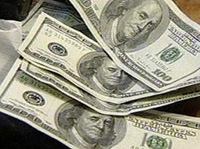Russia to take revenge on IMF’s dictatorship
Russia begins to take revenge on the International Monetary Fund for its dictatorship on the post-Soviet space during the 1990s. Russia, an erstwhile active recipient of IMF’s loans, begins to credit the Fund. Moscow plans to spend about one billion dollars for the purpose until the end of the current year.

Russia’s participation in the endeavor to save world economies will not relieve the country of the need to execute international recommendations. Like other members of the recent G20 summit in Washington, the Russian Federation will have to toughen the financial regulation.
Speaking about the results of the G20 summit, Russia’s Finance Minister Aleksei Kudrin said that the sides undertook to study the need of additional funding of the IMF, which continued to receive requests for stabilization loans since September 2008. The loans to Ukraine and Hungary have been already approved, whereas the loans for Belarus, Iceland and Bulgaria are still pending. It was said that Russia would give a billion-dollar loan to the IMF until the end of the year. The funds are to be used to provide emergency support for national economies.
If it happens, Russia has all chances to become a considerable donor of IMF’s anti-crisis programs for the first time ever. In July 1998, the IMF assigned $4.871 billion to Russia to maintain the national currency. The subsequent tranches of the loan were suspended after Russia’s default on state obligations and the restriction of the movement of capitals. The current crisis has made the Central Bank of Russia face a similar problem. The Bank continues to support the national currency, the ruble, with the help of the strategy that was used in 1998. However, its current reserves are a lot bigger than they used to be in 1998, and the home and the foreign debts of the nation are a lot smaller.
Russia became the second country after Japan which announced its readiness to provide the additional funding. Nevertheless, the support, which Russia promised to the IMF is not too large. IMF’s head Dominic Strauss-Kahn said in an interview with the BBC that the IMF’s reserves for stabilization loans were evaluated at $200 billion and that the Fund needed $100 billion of additional resources, the official added. Russia can provide about one percent of the required amount. The government of Japan said that it would be ready to provide up to 100 percent of the required amount.
Subscribe to Pravda.Ru Telegram channel, Facebook, RSS!


